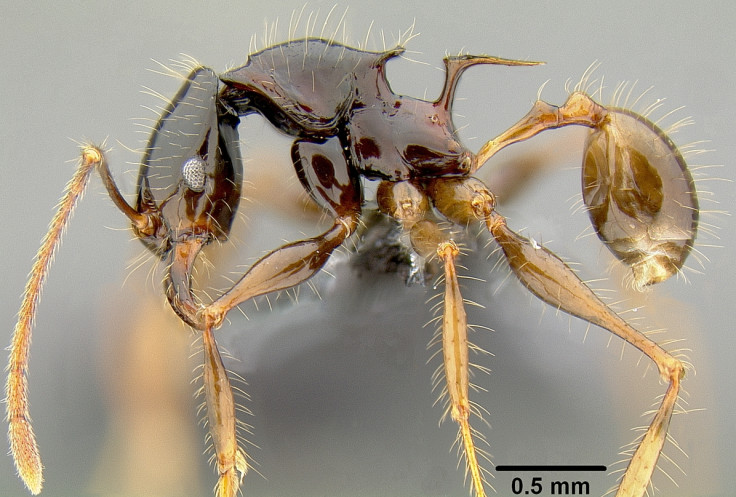Evolutionary genetics study shows how ants conquered the world in two steps

A group of ants with mysteriously high diversity has been shown to have evolved twice, once to take over the New World of Americas, and then again to take over the Old World of Europe, Asia, Africa and Australia.
The Okinawa Institute of Science and Technology study has constructed the evolutionary tree of the many Pheidole species of ants that have "conquered" the world.
One-tenth of ants in the world are closely related and belong to the genus Pheidole. They occupy niches in ecosystems ranging from rainforests to deserts.
OIST Graduate University's Professor Evan Economo and colleagues at the University of Michigan compared gene sequences from 300 species of Pheidole from around the world.
They then constructed an evolutionary tree showing when and where each species evolved into new species. Academic literature helped compile data on where all the approximately 1200 Pheidole species live on Earth.
Studying each Pheidole species they sequenced the sample DNA to determine genetic similarities between species, and computationally reconstruct the "family tree" of Pheidole species.
Instead of finding closely related species living in different continents, they found that the genus was split into two independent groups: one in the New World, or the Americas, and one in the Old World, or Europe, Asia, Africa, and Australia.
The study also showed a prevalence of Pheidole in warm, wet climates.
"They are dominant in certain areas preferentially to others," Economo said, "and these patterns are consistent even though they evolved independently".
This also suggests that evolution repeated itself.
However, while ruling out random chance, the reason Pheidole dominate tropical ecosystems is not sure.
The scientists hope to understand evolutionary processes better by the study of the ubiquitous ants.
Ants play an important role in the ecosystem such as soil aeration, nutrient cycling and dispersing plant seeds.
The work is published in the Proceedings of the Royal Society Series B.
© Copyright IBTimes 2024. All rights reserved.






